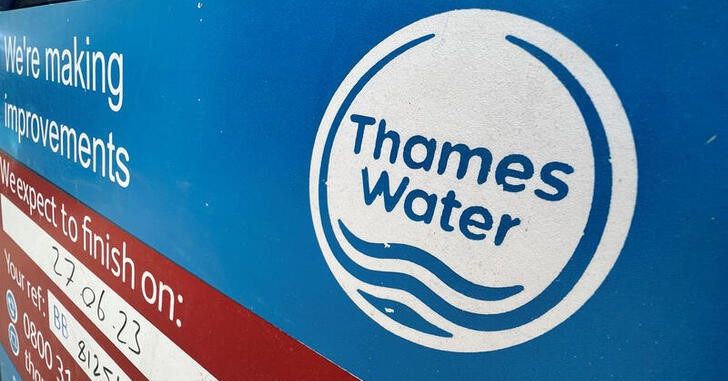
LONDON, July 5 (Reuters) – Investors in ailing Thames Water are reluctant to put in more cash, but Britain’s largest water supplier is still “a long way” from needing emergency intervention, regulator Ofwat said on Wednesday.
Thames Water, which serves around 15 million customers or more than a fifth of Britain’s population, is seeking to raise an additional 1 billion pounds ($1.3 billion) in equity to help upgrade its infrastructure and cope with the rising cost of its 14 billion pound debt pile.
Concerns over its survival have sparked questions about how Britain’s privatised water companies have been able to rack up debt and pay dividends and executive bonuses while failing to invest in infrastructure to the extent that raw sewage regularly has to be released into rivers and the sea.
“There is some time to sort out the issue,” Ofwat boss David Black told BBC radio. “Thames are looking for new finance to come to the business in the early part of next year.”
“The company is talking to investors about securing new equity,” he said. When asked whether investors were reluctant, he added: “yes.”
The government has held emergency talks over the fate of Thames Water and said it is ready for any outcome to ensure it survives, which could include temporary state ownership.
Thames Water counts Ontario Municipal Employees Retirement System, the UK’s Universities Superannuation Scheme (USS) and China Investment Corp as shareholders. The USS has said it supports the company’s turnaround plan.
Black pointed to a potential special administrative process – a form of insolvency that ensures services are maintained for customers while a new buyer is found – which could require taxpayer support.
“That’s the backstop option … but we’re still a long way from that position,” he told BBC radio.
The company, which has been sanctioned many times over the years for missing targets and pollution incidents, including a record 20 million pound penalty in 2017, was fined 3.3 million pounds by a British court on Tuesday after it pleaded guilty to polluting rivers.
Defending the sector, Black said it had been down to companies to control how much debt they took on, not the regulator, but that Ofwat now had greater powers to control their spending.
He added that he expected companies would want to raise consumer bills in the next regulatory cycle to fund upgrades to infrastructure.
($1 = 0.7865 pounds)
Our Standards: The Thomson Reuters Trust Principles.

